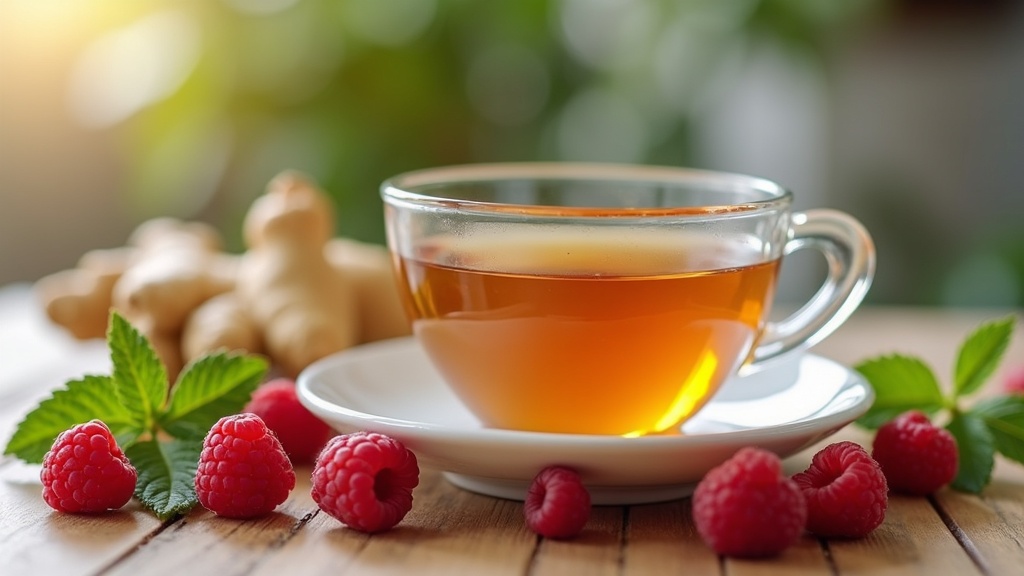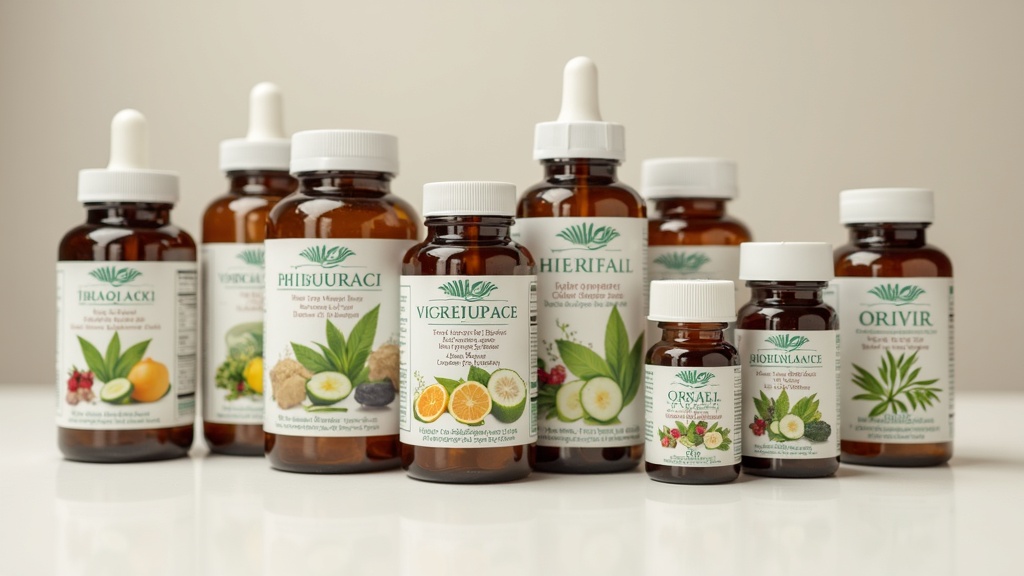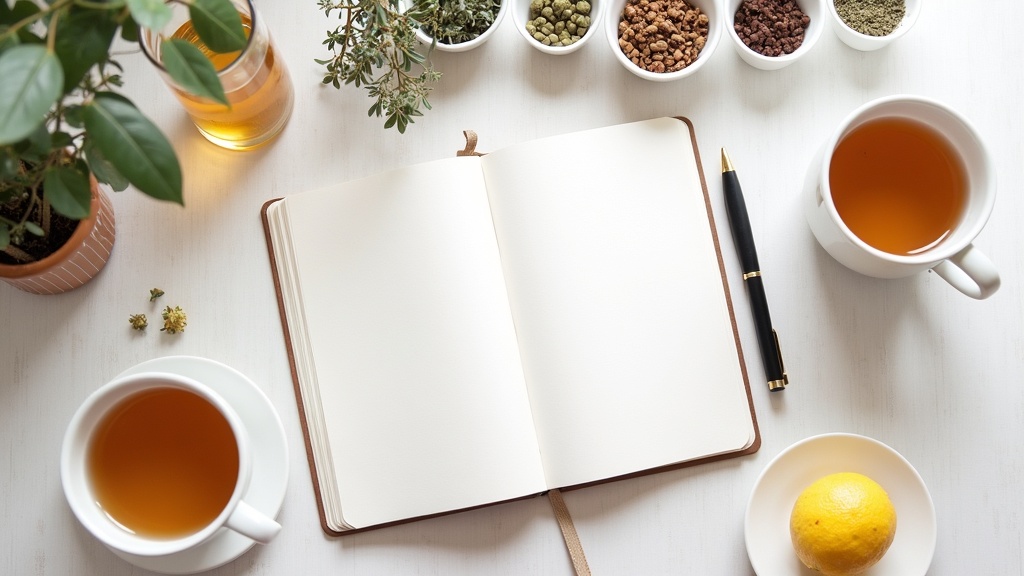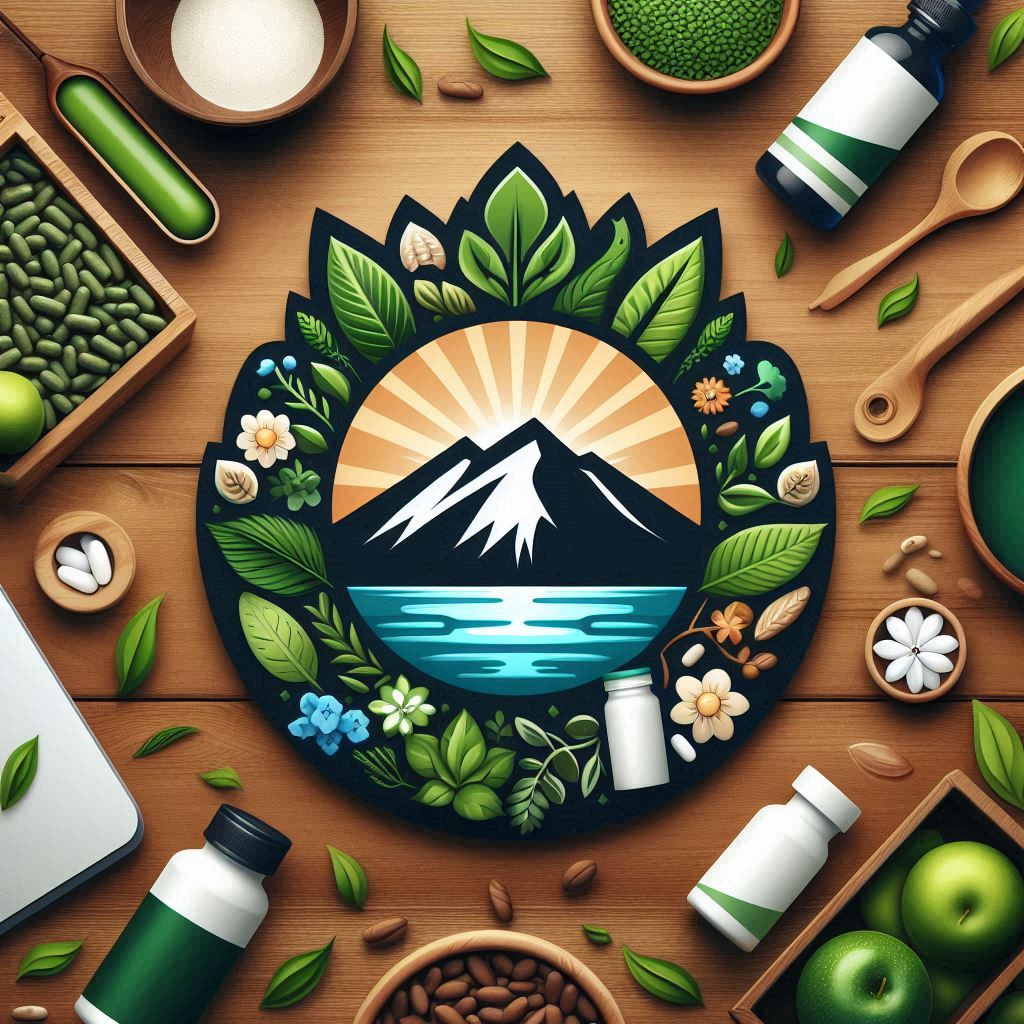Herbal supplements are everywhere these days, and I totally get why so many expecting parents look for natural ways to manage pregnancy symptoms. There’s something really appealing about picking up a warm cup of ginger tea for nausea or sipping peppermint to ease digestion when your stomach is doing flips. Before I go any further, though, I always want to start by saying: any new supplement or herbal product during pregnancy should be cleared by your healthcare provider. Your doctor’s advice should always come first, since even natural remedies can have some pretty serious effects on you or your baby.
Pregnancy can make a simple cold, upset stomach, or stress feel so much more intense. Turning to herbs seems like an easy fix, but things get complicated fast because what’s safe for one person isn’t always safe for another, especially when you’re growing a little one. There’s a lot of information out there, so I’m going to break it all down: which herbs have a decent track record, which ones are risky, and how you can make the best choices to keep both you and your baby safe.
Quick Reference: Common Herbal Supplements and Pregnancy Safety
Sorting through all the herbal options out there can feel like a project. So here’s a quick-look table that covers some of the more popular herbs people ask about during pregnancy and how safe or risky they seem to be according to the latest research. (Remember, this is for general info and not a substitute for medical advice!)HerbCommon UsePregnancy Safety NotesGingerNausea, morning sicknessBacked by studies, safe in teas or chews up to 1g/day, but check with your provider if you’re considering capsules or supplements.Peppermint Leaf (tea)Digestive upsetTea is fine, go easy on concentrated oil or extracts. Avoid peppermint oil unless your provider signs off.Chamomile (German, tea)Sleeplessness, anxietyLight tea on occasion is usually okay. Heavy or frequent use may increase risk of uterine contractions.Raspberry Leaf (tea)Uterine preparation (late pregnancy)Often used in the 2nd or 3rd trimester under guidance, not for early pregnancy.GarlicFlavoring, immunityAs a food, safe. At supplement doses, could increase bleeding risk late in pregnancy.TurmericSpice, inflammationSafe as a spice. Supplements might stimulate the uterus, so skip high doses.Aloe Vera (internal use)Digestion, constipationRisky. Can cause cramps, dehydration, and even contractions.
Now let’s get into the specifics: what makes an herb safe, which ones are best to stick to food form, and where you want to steer clear altogether.
What Makes an Herb Safe or Risky During Pregnancy?
Figuring out which herbs to trust during pregnancy isn’t simple. Even though “natural” sounds gentle, plenty of plants can pack a punch if they interact with your hormones, stimulate the uterus, or mess with how your body processes nutrients. Here’s how I like to think about it when reviewing herbal products or remedies:
- The Dose Matters: Tiny amounts in teas or food might be okay, but concentrated extracts or capsules can bring on side effects or risks.
- Timing is Everything: Some herbs might be less risky later in pregnancy, especially if they have a tradition of use for labor prep. Think raspberry leaf. Others are thought to be a problem at any stage.
- Your Own Health History: Allergies, medical conditions, and what medications you’re on all affect what’s safe for you. That’s one reason your healthcare provider’s input matters so much.
- Not All Herbal Studies Are Equal: Reliable pregnancy research on herbs is limited. What’s passed down in tradition or shown “safe” in general use isn’t always backed by big clinical studies. Safety guidelines can switch as more research comes out.
With that in mind, herbs usually fall into three big categories for pregnancy: generally safe (in moderation), herbs to avoid, and those to use with caution only if recommended by a professional.
Generally Safe Herbs During Pregnancy (When Used in Moderation)
I hear about these four herbs the most when people are looking for gentle, foodbased options to ease pregnancy symptoms. They aren’t risk-free, but have the best safety track record when used in typical amounts and are even recommended by lots of providers for specific uses.
Ginger
How people use it: Ginger tea, candies, chews, or (rarely) capsules—usually to help with morning sickness or general nausea.
What the research says: Several clinical studies back up ginger’s use for managing mild nausea and vomiting in pregnancy. Safe doses are usually capped at about 1 gram of dried powdered ginger per day, split between two to four doses. For most people, tea or natural ginger candies are enough. Higher doses or capsules should be run by your provider, since there are occasional reports of heartburn or mild bleeding risk at very high intakes.
Peppermint Leaf (Tea)
How people use it: As a calming tea, to soothe digestion, settle the stomach, or handle mild gas.
What the research says: Peppermint tea is safe in the amounts you’d use for food or as an occasional beverage. Avoid getting into super concentrated peppermint oil or supplements, since those can sometimes affect uterine muscles and haven’t been shown to be reliably safe in pregnancy.
Chamomile (German, Tea)
How people use it: Sleep troubles, anxiety, or just winding down. A cozy cup before bed is pretty popular among moms-to-be.
What the research says: A light chamomile tea occasionally is okay for most, but avoid really frequent or strong infusions because there’s a small risk chamomile could trigger uterine contractions if overused. If you notice any cramping or spotting after drinking chamomile, skip it and talk to your healthcare provider.
Raspberry Leaf (Tea)
How people use it: Touted as a way to “tone” the uterus and prepare for birth. Most people try it in the second or third trimester after checking in with their healthcare provider.
What the research says: Results are mixed—some studies say it might make contractions more efficient at labor, others find little benefit. Usually, it’s best to avoid in the first trimester. Safe use is typically limited to one cup per day, starting around week 32–34, unless your provider has different advice for you.
Herbs to Avoid or Only Use With Medical Supervision
This is where things get trickier. Some herbs are popular in natural health circles but come with real risks for pregnant people. Many of these herbs show up in detox teas or overthecounter supplement blends. If an herb stimulates the uterus, acts as a strong laxative, affects your hormones, or could increase bleeding risk, it’s best skipped while you’re pregnant, unless your provider is actively managing your dose.HerbWhy Caution Is NeededBlue/Black CohoshUsed to start labor; can trigger intense contractions and has been linked to fetal distress and complications.PennyroyalHistorically used for abortion; toxic to both liver and nervous system, linked to miscarriage.Mugwort/WormwoodStimulates the uterus, mild hallucinogen/neurotoxin in concentrated form.Aloe Vera (internal)Laxative effect, possible dehydration, electrolyte imbalance, and uterine stimulation.GinsengMay increase blood pressure, acts as a hormone disruptor.Licorice Root (in high doses)Raises blood pressure, affects hormone balance.Dong QuaiKnown to increase bleeding risk, also possible uterine contractions because of phytoestrogen content.Sage (medicinal doses)Contains thujone, linked to uterine cramping and contractions at high intake.GoldensealContains berberine, which can cross the placenta and may harm newborns. Linked to jaundice risk (kernicterus).
Plenty of online sources will say herbs like these are “traditional” for women’s health, and it’s true, they often show up in folk remedies or holistic medicine. But modern research and decades of clinical experience show enough risk that these herbs are on the do-not-use list unless you’re under the guidance of a very experienced herbalist and your OB-GYN is in the loop.
Why Even Safe Herbs Can Become Risky in Pregnancy
Everyone’s body reacts differently, especially when pregnancy hormones and metabolism are involved. There have been stories, sometimes even among friends, about an herb or tea that worked wonders for one person but left someone else with heartburn, cramps, or even allergic reactions. Here’s why caution is so important:
- Herbal Supplements Aren’t Always Standardized: Two different brands (or even two batches) might contain very different amounts of active compounds.
- Cross-Reactions With Prescription Meds: Some herbs impact how your body processes other medications. St. John’s Wort, for example, interacts with a long list of drugs, including those prescribed for anxiety or depression.
- Contamination Concerns: Over-the-counter herbal supplements aren’t regulated as strictly as prescription meds; sometimes, products are found to contain heavy metals, bacteria, or other nasty stuff. That extra quality control risk matters more during pregnancy, when the stakes are higher.
- Not Enough Long-Term Safety Data: Just because an herb was used “for centuries” or is found in nature doesn’t mean it’s totally safe for prolonged use in pregnancy. Many modern researchers are still gathering data on long-term outcomes.

Reading Herbal Labels and Finding Trustworthy Products
If you’re set on using an herbal supplement, a little detective work up front can help cut down on risk. Here’s what I keep an eye out for:
- Look for third-party testing: Reputable brands should be able to show their products are tested for purity and dosage by groups like USP, NSF, or ConsumerLab.
- Check the ingredient list, every time: “Detox” teas and blends often sneak in herbs that are risky for pregnancy, even if they’re buried at the end of the label.
- Avoid unlabeled or homemade tinctures: The dose and actual contents may be unclear, and alcohol-based tinctures come with extra concerns for developing babies.
- Go for singleherb products: If you’re trying ginger or chamomile, look for packages containing only that herb rather than a blend with unfamiliar names attached.
- Research the company: Health food stores or pharmacies with a solid reputation are less likely to carry shady supplements. Watch out for “miracle cure” websites or imported products with no QA info.
Herbs and Pregnancy: What’s Actually Supported by Research?
A lot of what we know about herbal safety in pregnancy comes from tradition, but I took a deep jump into guidelines from organizations like the American College of Obstetricians and Gynecologists (ACOG), National Center for Complementary and Integrative Health (NCCIH), and well-respected herbalists who work closely with OB-GYNs. Here’s what holds up under scientific review:
- Ginger is the only herb widely recommended by doctors for mild nausea in early pregnancy. Even then, moderation matters.
- Peppermint tea is generally accepted as a safe remedy for occasional tummy troubles.
- Other herbal teas like chamomile are okay for most in small amounts. People with a history of allergies to ragweed or related plants should skip it.
- Red raspberry leaf tea is still under debate. There’s not enough evidence that it makes labor shorter, but some midwives support one cup per day after 32 weeks if you want to try it. Avoid earlier in pregnancy unless your provider gives a thumbs up.
- The vast majority of herbal supplements, especially blends, detox, or weight-loss teas, should be left on the shelf during pregnancy.
Common Reasons People Turn to Herbs in Pregnancy, and Safer Alternatives
Sometimes an herbal remedy just feels like the only option, especially if you’re trying to cut down on prescription meds or superprocessed solutions. Here are the top symptoms I hear about, the herbs people try to use, and safer first-line choices your doctor will probably recommend.
Nausea and Morning Sickness
- Typical herbs: Ginger, peppermint, chamomile
- Safer options: Eating small, frequent meals; dry crackers first thing in the morning; vitamin B6 supplements (if your provider suggests it); acupressure wristbands
Indigestion, Gas, or Bloating
- Typical herbs: Peppermint, fennel, ginger
- Safer options: Slow eating, upright posture after meals, bland foods; ask your provider if an antacid is okay
Insomnia and Anxiety
- Typical herbs: Chamomile, lavender (aromatherapy), lemon balm
- Safer options: Warm baths, white noise, relaxing music, talking to your provider about safe coping techniques. Aromatherapy is generally safer than ingesting herbs, but don’t put essential oils straight on your skin or eat them.
Digestive Problems or Constipation
- Typical herbs: Aloe vera juice, licorice root
- Safer options: High fiber diet, increased water intake, provider-approved fiber supplements. Avoid aloe vera juice or strong herbal laxatives.
How to Track Safety—What to Watch for When Using Herbal Remedies
If you and your provider decide a certain herb is worth trying, it’s a good idea to keep a little journal or notes in your phone. Here’s what I usually track:
- Date and time you took the herb (helps spot patterns)
- What form you used (tea, capsule, food, oil, etc.)
- Any symptoms or reactions, good or bad (think rash, headaches, stomachaches, cramping, increased or decreased movement from baby, etc.)
If you notice any signs of cramping, bleeding, dizziness, fainting, rash, severe stomach pain, or anything that just feels off, stop immediately and call your provider. These could be rare side effects—better to be safe than sorry!
The Role of Professional Herbalists, Midwives, and Integrative Providers
If you’re set on exploring herbs, or if you have a specific cultural tradition of using certain plants, finding a professional herbalist or midwife with medical background is really smart. Here’s where trained integrative providers are super helpful:
- They know how to spot risky interactions or signs you might be getting too much of an active ingredient
- They can adjust recommendations based on trimester, your size, diet, and health conditions
- They have experience spotting signs of allergic or cross-reactions
- If they work with your OB-GYN or midwife, everyone stays on the same page about your care
If you don’t have an integrative practice in your area, telehealth or online consultations are becoming more common. Just be sure your provider is licensed or credentialed in prenatal care.
Troubleshooting: Herbs, Allergies, and Odd Reactions During Pregnancy
One thing that caught me off guard in my own circle was how many people experienced new allergies or odd digestive reactions to foods and herbs they used to love. Your immune system and gut change a lot during pregnancy, so that calming cup of chamomile that always helped before sometimes hits differently. Don’t write off strange symptoms as “just pregnancy”—if you try an herb and feel itchy, your heart races, or you just don’t feel right, stop and get in touch with your provider.
International and Cultural Approaches: Respecting Traditions, Staying Safe
Many cultures have a rich tradition of using plants, teas, and herbal blends for new mothers-to-be. If you come from a background where these remedies are part of community wisdom, honoring those practices can feel just as important as following the latest research. It’s not about pitting science versus tradition. What matters is keeping lines of communication open with your care team. Let your doctor or midwife know what you’re using (or want to use) so they can keep an eye out for interactions or risks. Chances are, they’ve seen it before and can help you make safer choices based on your specific situation.
Watch Out For: Herbal Marketing Tricks and Pregnancy Myths
- No herbal product is really “guaranteed safe” in pregnancy, even if it says so on the box.
- Ignore “miracle cure” claims for herbs, teas, or pills that promise to shrink swelling, flush toxins, or prevent all discomfort. Many of these products contain undisclosed herbs or strong laxatives.
- Avoid social media recommendations and “mom groups” as your only information source. These can be helpful for support, but medical decisions should come from your healthcare team.
Maintaining a Safe Pregnancy: Beyond Herbs
Staying healthy during pregnancy is about more than avoiding certain herbs. Here are a few habits that matter as much as what you drink or eat:
- Prenatal vitamins: These are specially formulated to support both your health and the baby’s development.
- Balanced diet and hydration: Eating a mix of protein, healthy fats, fruits, and vegetables works better for most symptoms than any single herb can.
- Regular prenatal checkups: Even if you’re feeling great, routine visits help your care team catch little issues before they become big problems.
- Open dialogue: Share everything—herbs, teas, supplements, folk remedies, even over-the-counter meds, so your provider has the full picture of how you’re managing symptoms.
Checklist for Safe Herbal Supplement Use During Pregnancy
- Always talk to your OB-GYN, midwife, or primary provider before starting any new herbal supplement
- Stick to single ingredient, food grade herbs. Prefer teas over extracts and skip “detox,” “slimming,” or “remedy” blends
- Choose brands with third-party testing (USP, NSF, ConsumerLab)
- Start with the smallest effective dose (and only increase with a provider’s guidance)
- Stop immediately and call your provider if you notice cramping, bleeding, rashes, or any other weird reactions
- Double-check all labels and skip products with unfamiliar or unlisted ingredients
- Track your usage and reactions (oldschool notepad or in your phone)
Key Takeaways: Safe Use of Herbal Supplements During Pregnancy
- It’s totally normal to want gentle, natural remedies for pregnancy symptoms, but not all herbal options are risk-free.
- Stick with well researched, food based herbs like ginger and peppermint in moderation (usually as teas or candies).
- Avoid high risk botanicals, especially those known to affect hormones, increase bleeding, or stimulate the uterus.
- Your healthcare provider is your best partner for making smart, safe decisions about herbal supplements and any other remedies.
- Be extra cautious with blends, “detox” and online remedies, and anything not third-party tested.
Pregnancy changes everything: how you process food, how you sleep, how your body reacts to new things. It’s a time to lean on reliable info, team up with your healthcare provider, and listen to your own body. When in doubt, stick with what’s tried and true, keep communication open, and trust that a little bit of caution now sets you and your baby up for a smoother, healthier adventure together.
References and Further Reading
- American College of Obstetricians and Gynecologists (ACOG) – Nutrition During Pregnancy
- National Center for Complementary and Integrative Health – Herbs at a Glance
- ConsumerLab.com – Supplement Quality Resources
- American Herbalists Guild – Find a Professional Herbalist
PS. If you have personal stories about herbs during pregnancy, tips on what worked for you, or questions about a specific supplement, drop them in the comments. I do my best to answer within a day or so, or connect you with resources that can help. Wishing you all an easier, healthier pregnancy adventure.
